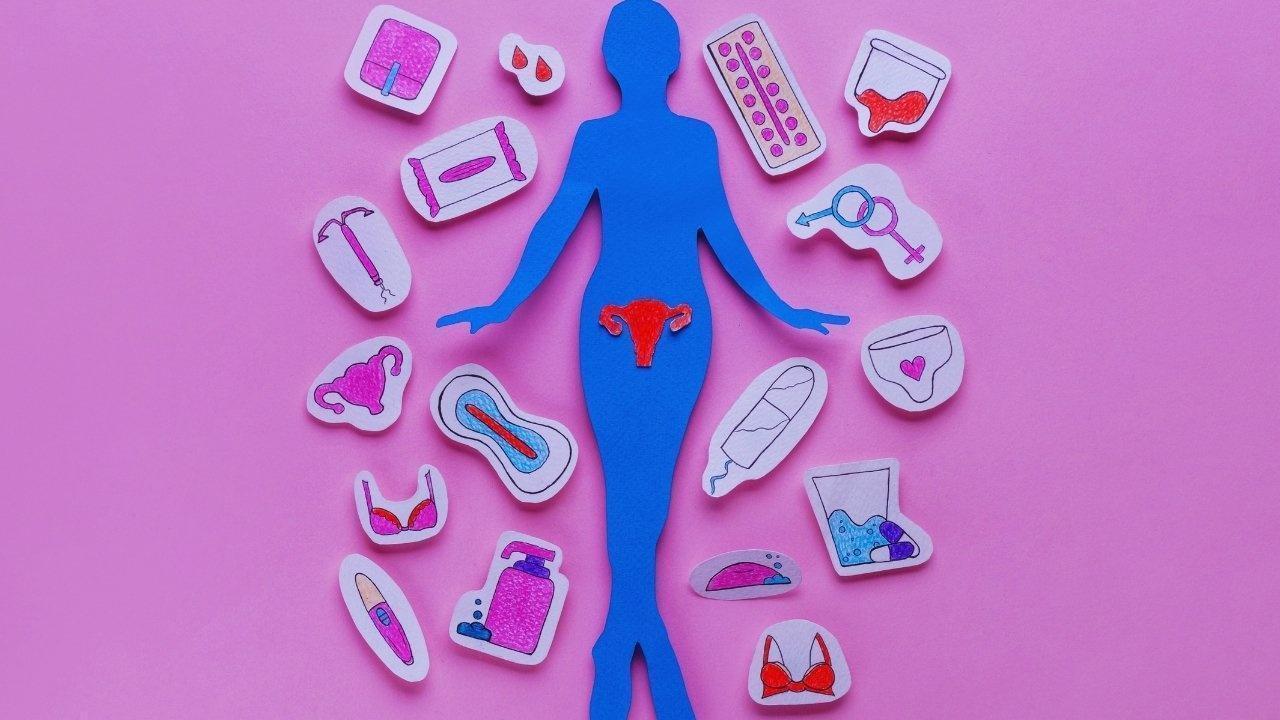You have not yet added any article to your bookmarks!

Join 10k+ people to get notified about new posts, news and tips.
Do not worry we don't spam!

Post by : Anis Farhan
For years, conversations about periods and menopause were muted or sidelined by medical and social taboos. That reticence is easing. Today, reproductive health is being recast as a central part of lifelong well-being, with both medical innovation and social dialogue driving change.
In 2025 the focus has moved beyond awareness campaigns: technology, clinical advances and new social norms are converging to give women clearer insight and greater agency over their bodies. From refined diagnostics to predictive tools, the emphasis is on understanding and managing hormonal life stages more proactively.
FemTech has emerged as a major force, creating products and services designed specifically for women’s health needs. Startups and established firms alike are releasing intelligent menstrual devices, fertility algorithms and personalized hormone monitoring that make reproductive care more accessible.
Where period apps once acted as simple logs, many now use machine learning to forecast mood shifts, fertility windows and hormonal trends with growing precision. These platforms also advise on sleep, nutrition and symptom management, forming a digital support system tailored to each cycle.
Menopause is being reframed from a private struggle into a visible phase of adult health. New treatment options and non-pharmaceutical approaches are widening choices, while wearables and symptom trackers help women and clinicians monitor hot flashes, sleep disturbances and emotional changes in real time.
Workplaces and insurers are beginning to respond: flexible policies, menopause-awareness initiatives and coverage for related care are appearing more frequently. Public figures and medical experts sharing their experiences have also helped normalize conversations about this universal life stage.
Hormonal balance underpins more than reproductive function; it affects mood, energy and metabolism. Non-invasive hormone testing and tailored programs are becoming mainstream, enabling women to track estrogen, progesterone and cortisol and make evidence-based adjustments.
Precision hormone therapy is replacing one-size-fits-all prescriptions. Customized regimens and bioidentical options, informed by individual lab results, aim to relieve symptoms such as fatigue and cognitive fog while improving safety and outcomes.
Lifestyle interventions are being aligned with hormonal cycles. Practitioners now advocate “cycle-aware” eating and training: timing higher-intensity exercise and iron-rich meals to certain phases while favoring restorative practices and targeted nutrients during others.
For menopause, dietary patterns that support bone, metabolic and heart health are emphasized. Foods containing phytoestrogens and a focus on stress-reduction practices like yoga and meditation play a larger role in comprehensive care plans.
Cultural barriers still persist in many regions, but education and advocacy are steadily changing perceptions. Schools are incorporating menstrual literacy into curricula, and some governments have introduced free sanitary supplies to improve dignity and access.
Public awareness campaigns and workplace education are reframing menopause as a normal life transition rather than a disability, encouraging compassionate policies and better support for employees across industries.
Emotional well-being is now recognized as integral to reproductive care. Mood fluctuations, menstrual-related depression and menopausal anxiety are being addressed through integrated mental health services and targeted therapies that combine psychological and physiological treatments.
Clinicians increasingly recommend mindfulness and tailored mental health support as part of routine reproductive care, acknowledging the interplay between emotional resilience and hormonal health.
Employer health programs are expanding to include reproductive and menopausal support, offering measures such as flexible scheduling, paid leave for severe symptoms and telehealth access. Several countries and private firms have already implemented policies recognizing menstrual and menopausal needs.
Insurance coverage is also evolving to include fertility services, hormone therapies and menopause treatments, marking a step toward greater parity in healthcare provision.
Data science and AI are positioned to deepen predictive care in women’s health. Advanced analytics can flag irregular cycles or early perimenopause, while wearables detect physiological cues that hint at impending hormonal shifts.
Future tools may include AI-driven virtual specialists that offer personalized monitoring and guidance, potentially shortening the time to diagnosis for conditions like endometriosis and PCOS that have historically been under-recognized.
Widespread education is driving much of the progress. From formal schooling to social media, accurate information about periods, hormones and menopause is becoming more available, helping people make informed health choices.
When knowledge and access come together, reproductive wellness becomes a standard part of healthcare rather than an optional extra.
The narrative around women’s health is shifting toward empowerment. Tracking cycles, seeking hormone education and preparing for menopause are increasingly framed as proactive self-care rather than problems to hide.
Movements for menstrual equity and menopause awareness are building community and reinforcing the view that these life stages are parts of a normal, resilient human journey.
The future of female health blends biology, technology and empathy. Researchers are testing gene-based therapies and companies are investing in AI-driven nutrition and fitness plans tailored to each life phase.
Analysts expect the women’s health market to expand rapidly through 2030, driven by both demand and innovation. The clear takeaway: reproductive health is now a leading edge of the global wellness movement.
This article is intended for informational purposes only. It should not replace professional medical advice, diagnosis, or treatment. Readers experiencing menstrual or menopausal symptoms are encouraged to consult healthcare professionals for personalized guidance.










Study Warns Using AI for Medical Advice Is ‘Dangerous’ as Users Get Inaccurate Health Guidance
A major new study reveals that artificial intelligence (AI) chatbots and tools may give misleading o

Top Sci-Fi Movies Streaming on Netflix This February: Must-Watch Picks for Genre Fans
A curated news-style guide to the best science fiction films currently available on Netflix in Febru

BCCI Central Contracts Shake-Up: Kohli, Rohit Moved to Grade B as Board Reshapes 2025–26 List
Virat Kohli and Rohit Sharma have been placed in Grade B in the BCCI’s 2025–26 central contract list

Dalal Street Spotlight: Top 10 Stocks Investors Are Watching as Markets Open on a High
Indian stock markets begin the week with strong momentum, and several blue-chip and mid-cap stocks a

Market Movers Today: Key Stocks Set To Watch In Indian Markets
Indian equity markets are poised for active trading as several major companies, including Bharti Air

Milan Welcomes the World: Inside the Grand Opening Ceremony of the 2026 Winter Olympics
The 2026 Winter Olympics opening ceremony in Milan marked a defining moment for global sport, blendi